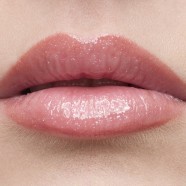Understanding the Common Causes of Worn Teeth: Bruxism, Abrasion & Erosion
One of the most common causes for worn teeth is bruxism. Bruxism refers to tooth grinding or jaw clenching, especially during sleep, which wears down your enamel at an accelerated rate. You may have bruxism and not be aware of it, so contact Downtown Dental for an appointment and we’ll let you know if your teeth are showing signs of bruxism and what you can do if that’s the case.
Abrasion is another common cause of worn teeth. Simply put, abrasion describes tooth enamel that is worn down by foreign objects in the mouth. Toothbrushes are the most common type of abrasive objects. If you brush your teeth too vigorously, you risk wearing down your enamel too much. Chewing pens or fingernails can cause teeth to lose enamel fast as well, as can an oral piercing or tongue ring.
Erosion is the third common cause of worn teeth. Erosion is caused by any substance that dissolves the enamel. Citric acid is the number one eroding agent of tooth enamel, but if you or a loved one has made a habit of purging, the gastric acids in your stomach can also dissolve your enamel.
At Downtown Dental in Vancouver, we offer several dental solutions for your worn teeth, but it’s our policy to work with you to address the cause of the problem, not just the symptoms. Take care of your teeth and contact Downtown Dental today for an appointment.
Read MoreProper Oral Care: Children’s Dental
We all know that maintaining oral health is important, especially when it comes to children. Experts suggest that parents should start taking care of their children’s oral health at age 1 or as soon as their first teeth come in. However, a report from C.S. Mott Children’s Hospital indicates that the majority of children from ages 1-2 have not even begun seeing a dentist.
At Downtown Dental, we want to encourage our Vancouver patients to bring their children to our dental office as soon as they turn 1 or as soon as their first teeth come in. We will give your child the proper oral care they need, so they can lead healthy lives with a lifetime of smiles.
The reason that children may not be getting the proper oral care is because parents may be oblivious when it comes to early dental care. At Downtown Dental, we can discuss your child’s proper oral care and what steps you need to take to ensure your child is getting the dental care they need.
For more information about proper oral care at Downtown Dental in Vancouver or to book an appointment, please click here.
Read MorePrevent Cavities by Using Dental Sealants
Simply brushing your teeth is not an effective solution for preventing tooth decay and erosion. The general dentistry team at Downtown Dental in Vancouver recommends dental sealants, which give teeth solid protection against the bacteria that infiltrates your mouth and causes cavities.
What are dental sealants?
Sealants are made of durable, stain-resistant plastic and are bonded to the grooves of your teeth. After a dentist at Downtown Dental seals the tooth, the grooves are smoothed down and make it hard for plaque to build. Sealants make brushing teeth easy and efficient.
Dental sealants are safe for children and are a great way to prevent tooth decay after their permanent teeth have erupted. Sealants, however, can only be placed on healthy teeth. Sealing permanent teeth is much more common that sealing baby teeth; however, each person has different needs and your local Vancouver dentist at Downtown Dental can tell you if dental sealants are a good option for you or not.
Sealants last for a few years, although it is common for adults to have older sealants that are still functional. A dental sealant is only effective when it is in good shape, so if your sealant falls out, let your dentist know and book an appointment so we can reseal your teeth.
To learn more about dental sealants, or to book an appointment with your local Vancouver dentist at Downtown Dental to reseal your teeth, contact us today.
Read MoreTongue Rings Can Be Fatal: Preventing Infections
No matter how cool and trendy you think tongue rings are, these piercings are dangerous and potentially fatal. Piercing your tongue can result in chipped teeth, recessed gums and nerve damage. What some people don’t know is that getting a piercing in the mouth can result in a fatal condition, like Ludwig’s angina or endocarditis.
Ludwig’s angina is an infection in the bottom of the mouth caused by bacteria, and occurs after your tooth has been infected, an injury to the mouth, an oral procedure or an unnecessary hazard to your health. When you get an oral piercing, the mouth develops an open wound for bacteria to travel through your blood. Bacteria has the power to make the bottom of the mouth swell quickly which blocks the airway or stops you from swallowing your saliva.
Endocarditis comes from bacteria traveling in the blood through the hole that has been pierced. This can be an infection in the heart, and people who have a history of heart problems are at risk for this disorder.
Most professionals will not recommend piercings, but if you do get a piercing, be sure to take good care of it. Unclean piercing equipment can cause other infections, like hepatitis. Make an appointment at Downtown Dental in Vancouver to ensure that you are getting the follow-up care you need.
Read More
Tooth Sensitivity: Causes and Solutions [VIDEO]
Tooth sensitivity is a nerve irritation that occurs after your enamel has worn down or if your gums are receding, exposing the surfaces of your teeth. Pain normally stems from consuming hot or cold foods and beverages that touch your teeth, bringing them in contact with cold air. If you’re having tooth sensitivity, Downtown Dental in Vancouver can help.
The most popular complaint from dental patients is that tooth sensitivity causes so much pain that your eating habits change – even a spoonful of ice cream can be an excruciating experience for people with sensitive teeth.
What causes tooth sensitivity?
There are a variety of reasons that your teeth may be extra sensitive. One factor that may lead to tooth sensitivity is eating or drinking large quantities of foods with acid, especially citrus juices. Avoiding these foods and drinks can help alleviate the problem.
How can I prevent tooth sensitivity?
Another great way to prevent tooth sensitivity is by using the proper toothpaste. Toothpastes that have abrasive ingredients like the ones in whitening toothpastes will be hard on people with sensitive teeth. A desensitizing toothpaste is a better choice, and having your dentist apply sealants or fluoride will help.
Brushing your teeth too hard can also cause tooth sensitivity, so it is a good idea to use a soft toothbrush. Brushing too hard can start breaking down the tooth and expose the more sensitive underside. A good test to see if you are brushing too aggressively is by looking carefully at the bristles on your toothbrush. If the bristles point in several directions, then you are brushing too hard.
The dental team at Downtown Dental in Vancouver have a number of regiments that can help you manage tooth sensitivity. One treatment solution is to apply a desensitizing agent or protective coating that will alleviate any discomfort you might have.
Contact Downtown Dental in Vancouver today to learn more about managing tooth sensitivity.
Below you’ll find an informational video from Colgate on tooth sensitivity:
Read MoreProper Oral Care: Children’s Dental
We all know that maintaining oral health is important, especially when it comes to children. Experts suggest that parents should start taking care of their children’s oral health at age 1 or as soon as their first teeth come in. However, a report from C.S. Mott Children’s Hospital indicates that the majority of children from ages 1-2 have not even begun seeing a dentist.
At Downtown Dental, we want to encourage our Vancouver patients to bring their children to our dental office as soon as they turn 1 or as soon as their first teeth come in. We will give your child the proper oral care they need, so they can lead healthy lives with a lifetime of smiles.
The reason that children may not be getting the proper oral care is because parents may be oblivious when it comes to early dental care. At Downtown Dental, we can discuss your child’s proper oral care and what steps you need to take to ensure your child is getting the dental care they need.
For more information about proper oral care at Downtown Dental in Vancouver or to book an appointment, please click here.
Read MoreKids and Cavities: What Parents Need To Know
Due to an increase of sugar in their diet through fast food, soda pop and candy, children are now much more susceptible to bacteria which causes cavities or tooth decay to harm their teeth.
In fact, the U.S. Center for Disease Control cites a study that says there has been a 15.2 percent increase in tooth decay during the last 10 years for children under six.
Various things cause tooth decay for younger dental patients at Downtown Dental in Vancouver, most notably sugar intake, severe stress, contents in baby bottles and infant feeding habits.
Children’s oral health worsens when they are sent to school. At school, there is more chance of them getting a soda from vending machines. Our culture is shifting so that there is minimal parental supervision and convenience foods are way too readily available, and this is all having a severe effect on oral health.
There are many things parents can do to stop their kids from getting cavities. Daily oral care is essential, and can be achieved at minimal cost.
Here are some additional healthy dental habits for kids:
Making sure your child gets the proper oral care. Pregnant women who eat a balanced and nutritious diet are already helping their children and leading them on the right path when it comes to oral health. Preventive care is ideal after the baby’s first feeding and should continue on as the child gets older. Children are not able to remove plaque themselves until they are eight, so a parent needs to help them brush and floss twice a day.
Sugar is hurting your child’s teeth. Kids can get cavities as early as nine months of age. Their upper front teeth are first affected and this can quickly spread to the other teeth if a child is feeding on a bottle containing sugar. If food surface is not removed from the teeth, your child’s teeth will start to decay quickly.
Bring your child to the dentist before they turn 1. Before a child turns one is the ideal time to take them for their first dental visit. This is a good idea for you too, parents – this appointment can help educate you on what you can do to make sure your child’s oral health is the best it can be. We can also help you identify signs of early problems while they are still in a stage that is easy to treat.
Dental checkups for your child at Downtown Dental in Vancouver are essential, so contact us and make an appointment today.
Read More

















